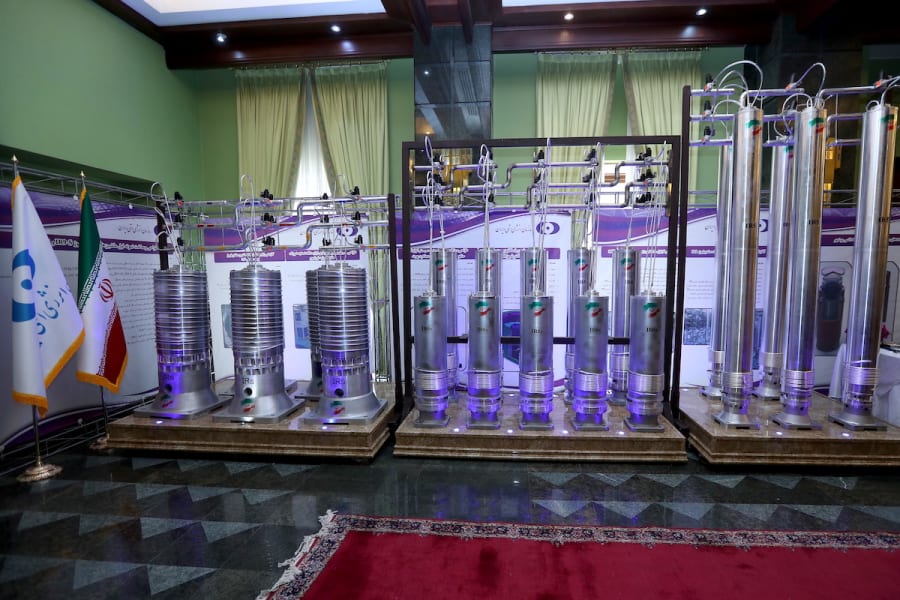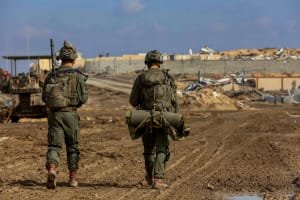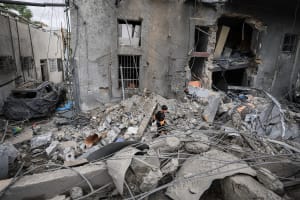Iranian uranium enrichment reportedly dangerously close to nuclear bomb capability
Iran denies it is conducting enrichment at weapons-grade levels

Atomic agency inspectors from the United Nations reportedly learned last week that Iran’s uranium enrichment has reached 84% purity, according to Bloomberg on Sunday.
This is dangerously close to the 90% enrichment level required for producing a nuclear weapon.
If the report holds true, Iran’s enrichment level would constitute a dramatic escalation from the regime’s previously known 60% enrichment level.
The International Atomic Energy Agency (IAEA) is reportedly in talks with Iran’s ayatollah regime concerning its uranium enrichment violations.
“The IAEA is aware of recent media reports relating to uranium enrichment levels in Iran,” the U.N. nuclear watchdog stated on Sunday. “The IAEA is discussing with Iran the results of recent agency verification activities and will inform the IAEA Board of Governors as appropriate.”
Iran on Monday denied that it is conducting enrichment at weapons-grade levels.
“So far, we have not made any attempt to enrich above 60%. The presence of particles above 60% enrichment does not mean production with an enrichment above 60%,” said Behrouz Kamalvandi, spokesperson for Iran’s Atomic Energy Organization.
Iran has consistently denied that it is seeking nuclear weapons, with the regime’s Supreme Leader Ali Khamenei claiming that Islam forbids nuclear weapons.
“Although we could have taken steps on this path, based on Islamic ruling, we firmly and bravely said we won’t take this path,” Khamenei stated in 2019.
“Both building and stockpiling it is wrong, as using it is haram,” Khamenei wrote on social media. “If we had a nuclear weapon, it would have been obvious that it would have been impossible for us to use [it] anywhere.”
The Iranian regime insists that its nuclear program is designed only for peaceful civilian purposes.
Much of the Arab world, however, is concerned about Iran’s nuclear program, including those who fear that a nuclear-armed Iran would trigger a dangerous nuclear arms race in the already combustible Middle East. Israel is particularly concerned, as the ayatollah regime has repeatedly stated its goal of wiping the Jewish state off the map.
In a candid 2002 sermon, former Iranian President Ali Akhbar Hashemi Rafsanjani said the regime believes that most of Israel can be destroyed with only one nuclear weapon due to the country’s minuscule size.
“If, one day, the world of Islam comes to possess the [nuclear] weapons currently in Israel’s possession – on that day, this method of global arrogance would come to a dead end,” Rafsanjani stated. This would be because “the use of a nuclear bomb in Israel will leave nothing on the ground, whereas it will only damage the world of Islam.”
Iran is a vast country, approximately 100 times larger than Israel and far larger than the combined territory of Germany, France and Britain.
For years, Israeli Prime Minister Benjamin Netanyahu has vowed to prevent the Iranian regime from acquiring nuclear weapons. Netanyahu stressed that Israel ultimately would use military force against Iran if the nation did not stop its nuclear program.
In November, the Likud party's Tzachi Hanegbi, a close Netanyahu ally and former minister, told Israeli media that Netanyahu is prepared to order a strike against Iran’s nuclear facilities if the Biden administration does not stop Tehran’s quest for nuclear weapons.
“Israel will, for the first time, be facing a regime with nuclear weapons,” Hanegbi said, stating that Netanyahu “will not be reconciled with a nuclear Iran.”
“In my assessment, he’ll have no choice: This is the story of 1981 –[Menachem] Begin, 2007 – [Ehud] Olmert, 2022 …” Hanegbi added, with a reference to Israel’s previous strikes against nuclear plants in Iraq and Syria.














